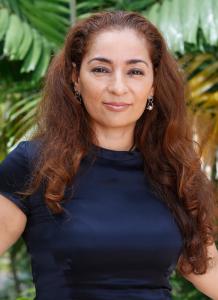Towards a new society? Pope Francis' encyclical "Fratelli Tutti".
Archbishop José Domingo Ulloa
Archbishop of Panama, Grand Chancellor of the USMA
Francisco Javier Blanco
Rector-elect of the USMA
P. Miguel Ángel Keller
Dean of the Faculty of Humanities and Theology, USMA
Moderator:
Yadira Gratacós
Project Coordinators of the Konrad Adenauer Foundation Panama, Regional Programme ADELA ("Alliances for Democracy and Development with Latin America")
Event
On the 3rd of October 2020, Pope Francis published the encyclical letter 'Fratelli Tutti' - 'Brothers and Sisters', the new social text of the pontificate, in which he proposes a programme of life in which he tries to illuminate the concrete path to follow for those who want to build a more just and fraternal world from everyday life, politics and institutions. In this encyclical the Pope focuses on answering questions related to the theme of fraternity, humanity in the face of the pandemic and the fragility of our social systems worldwide. He answers questions such as:
How to provide more equality and freedom with values and in frank brotherhood? How a message of value can lead us to social well-being? Are solidarity, justice and freedom equal for all? Are the cohesion, empathy and benevolence of the individual with and in our society in continuous improvement? What are the greatest challenges to achieve this change in our social paradigms?
The Encyclical "Fratelli Tutti" of Pope Francis
Fraternity and social friendship are the paths that the Pontiff indicates to build a better, more just and peaceful world, with the contribution of all: individuals and institutions. With an emphatic confirmation of the "no" to war and globalised indifference. This encyclical consists of eight chapters and is Pope Francis' third encyclical, subtitled "On fraternity and social friendship". In the document, Francis states that the COVID-19 pandemic has demonstrated the world's failure to work together during this crisis.
The encyclical calls for more fraternity and human solidarity, and is a call to reject wars. It calls for what many consider to be the path to a totally changed society for wellbeing during these strict times of a pandemic. That is the strongest virus our society has ever had. It is a successful attempt to reach a complete harmonisation for the common good of humanity and a new reintegration for social, economic, political and cultural progress on a global level.
The University Santa Maria La Antigua, offers an analysis of this encyclical with the participation of the rector-elect Francisco Javier Blanco, and with Fr. Miguel Angel Keller, Dean of the Faculty of Theology and Humanities and main speaker on the content and message of this letter.
"A more righteous world"
Pope Francis within this encyclical points out the inability of human beings to work together during this pandemic, whether for political or commercial interests, which he has considered as a lesson for the whole humanity. We should strengthen and prepare for future events such as the pandemic of 2020. Additionally he mentions that through this important lesson we should reach the mentioned "fraternity".
The Pope also mentioned the great fragility and vulnerability of global systems in the face of the pandemic and that not everything should be solved by the freedom of global markets and that there should be a need to rehabilitate and implement a better policy that is not subject to the dictates or order of finance.
In writing the letter of the Pope focuses on the fact that the COVID-19 virus has abruptly unveiled the false securities of the world's governmental systems, societies and individuals present on this earth. He mentions the importance of this pandemic in creating an awareness of the human being, that spiritual ego and individualism make us forget that we are part of a fraternal society.
Francis states that the pain, uncertainty, fear and awareness of one's own limits that the virus pandemic awakened, resonate the call to rethink our lifestyles, our relationships in general, the organisation and order of our societies and above all the meaning of our human existence as spiritual.
A Remarkable Text
Well-known critics such as Christoph Stack have, at first glance, considered the Pope's encyclical to be a letter that omits many controversial and topical issues of the Catholic Church, but when analysing the letter it falls squarely on the essential issues of the pandemic, he calls it a "remarkable text" and important to read, and recommends that the world's high powers become aware of the writing of this encyclical, although the encyclical has been highly criticised by political entities due to Pope Francis' criticism of the concepts of economic freedoms. They criticise the encyclical's involvement with economic and political issues which many believe the Catholic Church should not be involved in or have any influence on.
The encyclical has taken its share of strong criticism for its content, but many have hailed it for its success in highlighting key failures of governments and societies in dealing with the pandemic situation, providing further truth and support for its concept of a global fraternity. Many experts and professionals have seen the message that Pope Francis is trying to send and that it has nothing to do with any religious intervention in political or economic matters, but to be aware of human mistakes and learn from them in order to have a better reaction to situations that the world is currently experiencing with the Pandemic. Pope Francis calls for interreligious dialogue and recalls the common mission of religions: peace and fraternity, banishing violence and religious terrorism.
Konrad Adenauer Foundation
By:
Alejandro Alberto Marin Leiva
KAS ADELA Office, Panama.



